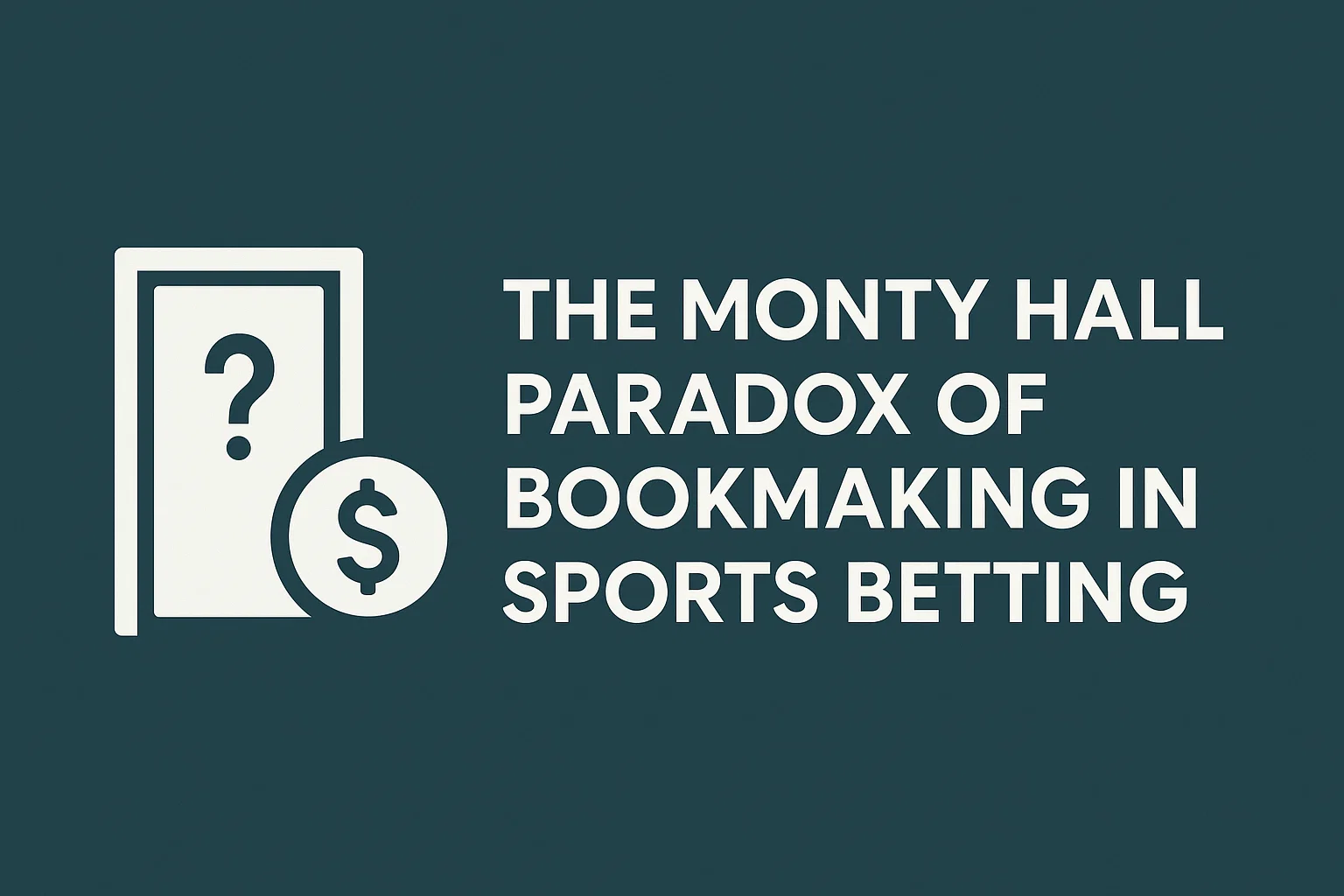The Monty Hall Paradox of Bookmaking in Sports Betting

To bet successfully with bookmakers and reap profits, it is not enough to be skilled in sport predictions — one must possess intuition regarding the characteristics of betting strategies employed on bookmaker websites as well. Random, unstructured betting, most beginner players are vulnerable to, may at times reap an occasional one-off gain through sheer luck but ultimately yields only losses.
Even professional punters have frequent losing bets. In order not to end up with a negative balance, you must use a strategy that allows you to mask losses. This is what a well-thought-out strategy is all about. For gamblers today, especially those looking for trusted betting apps in India, the Monty Hall paradox has significant things to teach us regarding probability and choice.
The Monty Hall Paradox Explained
The Monty Hall Paradox is a celebrated problem of the theory of probability whose solution must be embraced by one willing to embrace reasoning against common sense and incompatible with the reasoning of the strictly logical mind. Comprehending this paradox may be very helpful for professional and beginner players because it will save them from many mistakes in the estimation of risk, and it will also educate them on how to reasonably understand a possibility of a positive outcome.
There are some reasons why this paradox is really applicable for gambling:
- It demonstrates how intuition misleads gamblers.
- It demonstrates how adjusting your approach after receiving new information enhances your prospects.
- It holds that probabilities must be calculated rather than relying solely on instinct.
The Classic Monty Hall Problem
The Monty Hall paradox was popularized via the American television program Let's Make a Deal, hosted by Monty Hall. Its peak popularity was attained after the probability puzzle at the core of the game had been put into writing as part of probability theory discussions. The conditions of the game are as follows:
You are playing a game show where, in order to win the grand prize, you must choose one of three doors. Behind one of the doors is a car and goats behind the other two. You choose Door No. 3. The host opens another door — let's say, Door No. 2 — and you see that behind it is a goat. The host then says: "Would you like to switch to open the other door?"
The question: should the contestant switch? Does switching the initial choice make it better to go home with the car? It should be noted that cheating is not an option — prize locations are fixed and not manipulated by show organizers.
The Correct Answer
So, what is the correct choice? Stay with Door No. 3 or switch to Door No. 1? The majority of people intuitively believe in their original choice, just as most do when solving the problem.
At first glance, nothing appears to change: at the beginning, there was a 33.3% chance of winning. After one goat door is opened, it appears the odds are now 50/50.
In reality, this is a misconception. Players who switch their choice win twice as often as those who don’t.
The common fallacy is that contestants recalculate after opening the first door and assume that the probability has shifted to 50/50. What actually happens is that the initial choice still has a 33.3% probability of being correct. But once the host opens one of the goat doors, the probability of the remaining unopened door containing the prize shifts to 66.6%.
At first, this conclusion may be counterintuitive or even absurd. But many mathematicians around the world would concur that switching doors indeed doubles the chances for success.
To make the concept easier to understand: include the chance of the two doors the contestant didn't pick. Altogether, they have a 66.6% probability of containing the vehicle. After the host opens one of them to reveal a goat, the entire 66.6% chance is left behind on the other closed door — the one being offered by the host.
Value for Sports Betting
This paradox is directly applicable to sports betting, where punters have to evaluate events correctly and forecast outcomes by reasonable judgment. It points to how easily individuals misread probabilities and make unjustified decisions based on what they think and not necessarily logic. In betting, one has to consider all information at hand and measure the real probability of outcomes. This ability is particularly vital while looking for value bets.
Additionally, similar to that of Monty Hall's problem, once new and informative information has been uncovered, gamblers should reevaluate probabilities and adjust their strategies in accordance. Through this, there will be a greater understanding of risk and a greater chance for certain win.